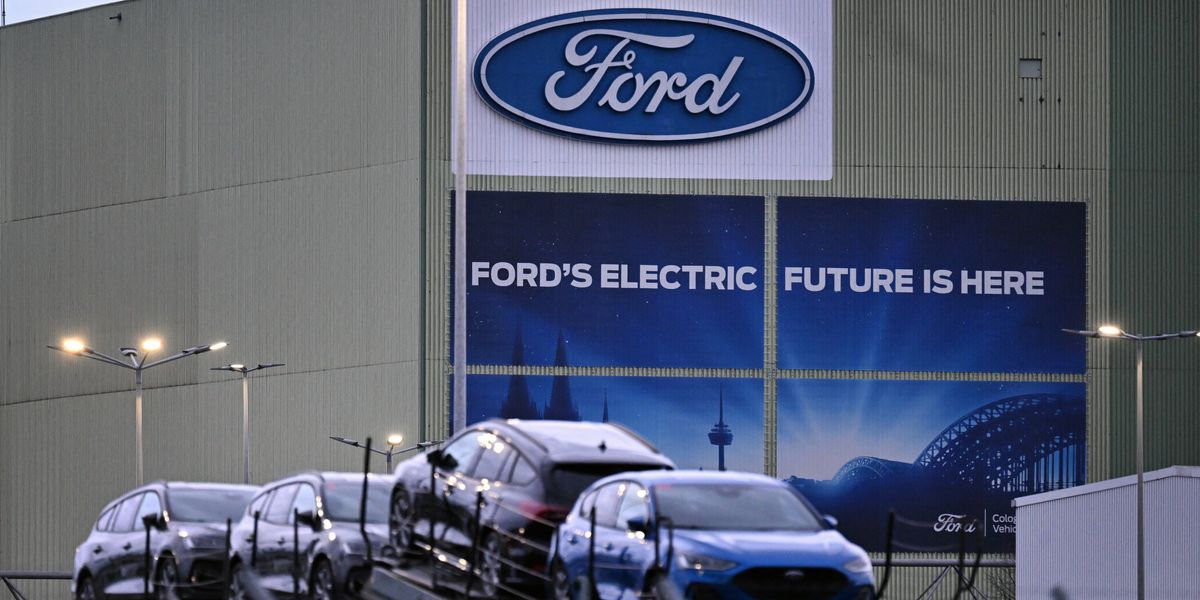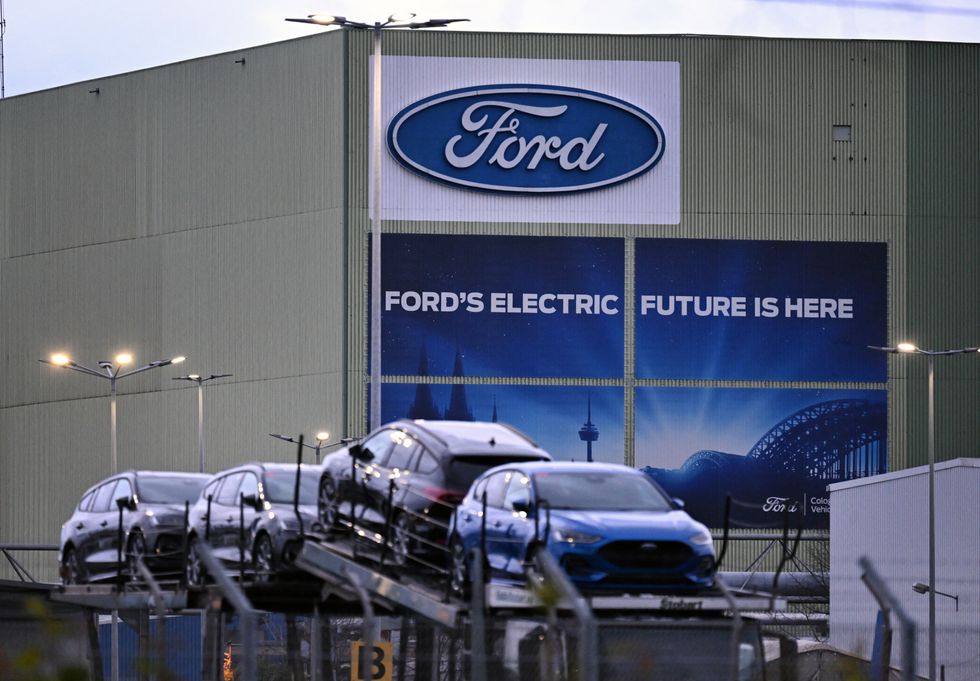



Automotive giant Ford has revealed that import duties imposed by Washington cost the company $800 million (£604million) during the second quarter of 2025, prompting the manufacturer to increase its annual tariff impact forecast to $3billion (£2.2billion).
The Michigan-based carmaker's shares dropped approximately three per cent in after-hours trading on Wednesday following the announcement, despite the company surpassing Wall Street's earnings projections.
The manufacturer has revised its full-year adjusted earnings guidance downward to between $6.5billion and $7.5billion, or £4.9billion and £5.6billion.
This is a reduction from the $7billion to $8.5billion (£5.3billion to £6.4billion) range projected in February.
 GETTY |
GETTY |
Ford said it had taken a massive hit from President Trump's tariffs and its EV division
Chief Financial Officer Sherry House attributed the increased tariff projections to prolonged elevated duties on imports from Mexico and Canada, alongside sustained high levies on aluminium and steel.
The company posted a quarterly net loss of $36million (£27million), primarily attributed to special charges from abandoning a three-row electric SUV project and a substantial $570million (£431million) vehicle recall.
Ford's market share gains have been driven by aggressive promotional campaigns, including a "zero, zero, zero" initiative offering customers no deposit, interest-free financing for 48 months, and deferred payments for three months on most models.
CFRA Research analyst Garrett Nelson noted: "The substantial revenue outperformance demonstrates Ford's pricing power, but margin compression suggests underlying cost pressures remain problematic."
Petrol-powered vehicle sales surged 15.5 per cent during the quarter, benefiting from these promotional offers, whilst hybrid models also proved popular with consumers.
Ford's domestic manufacturing strength has provided greater protection against tariff impacts compared to its Detroit competitors, with approximately 80 per cent of vehicles sold in America produced within the country.
This represents roughly 25 per cent higher domestic production than General Motors and Stellantis, according to business analytics firm GlobalData's assessment of 2024 import data.
General Motors faced steeper quarterly tariff costs of $1.1billion (£832million), primarily affecting its Korean-manufactured Chevrolet and Buick entry-level models.
Despite Ford's manufacturing advantage, the company remains vulnerable to steep duties on aluminium, steel and copper affecting the entire sector.
Executives have also reported production disruptions this quarter due to constrained supplies of rare earth magnets from China.
Ford expects to offset $1billion (£756million) of its total tariff expenses, whilst GM plans to counteract 30 per cent of its costs.
Ford's electric vehicle division continues to haemorrhage funds, with operating losses reaching $1.3billion (£983illion) for the quarter.
 FORD |
FORD |
Ford has a number of electric vehicles on the market
Grim annual projections suggest that Ford could lose up to $5.5billion (£4.1billion) for 2025.
The anticipated removal of a $7,500 (£5,673) consumer tax credit in September is expected to further suppress electric vehicle sales growth.
Chief Executive Jim Farley, who has prioritised addressing quality issues since assuming leadership in 2020, confirmed the company maintains daily communications with the White House regarding tariff negotiations.
He said: "We see there's a lot of upside depending on how the negotiation goes with the administration."
